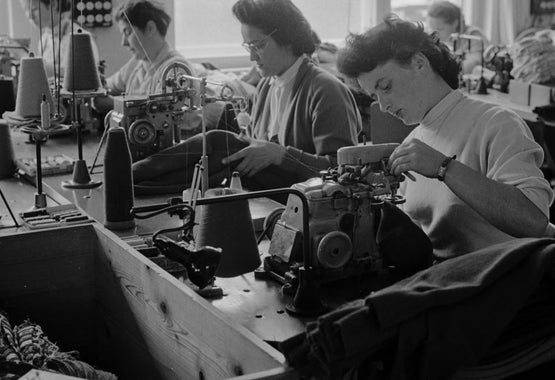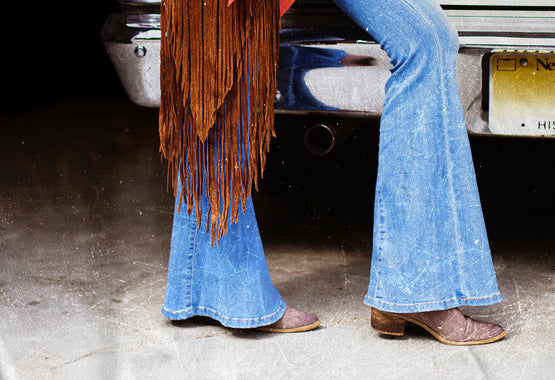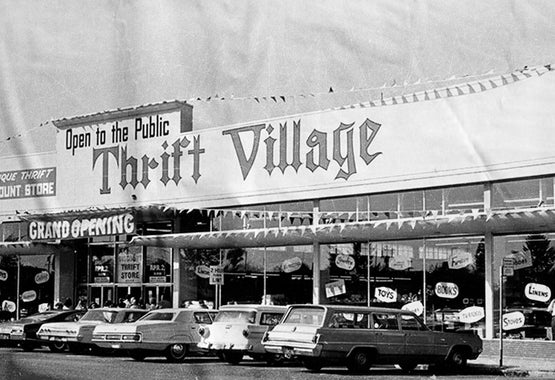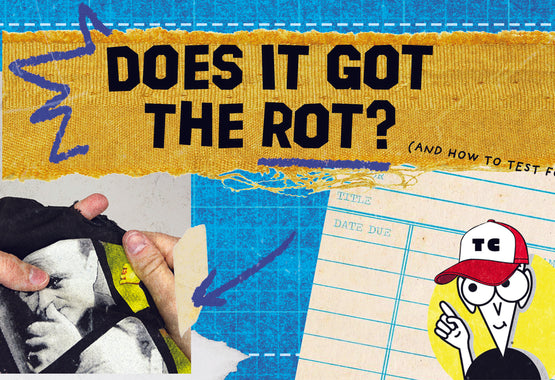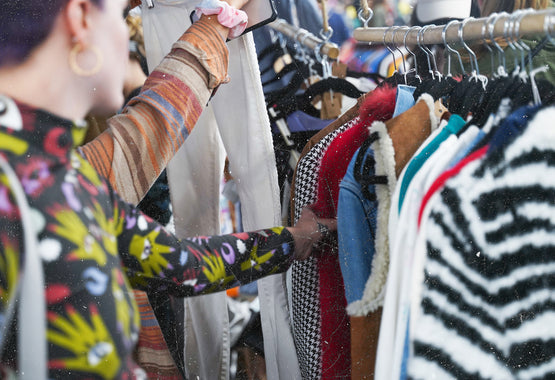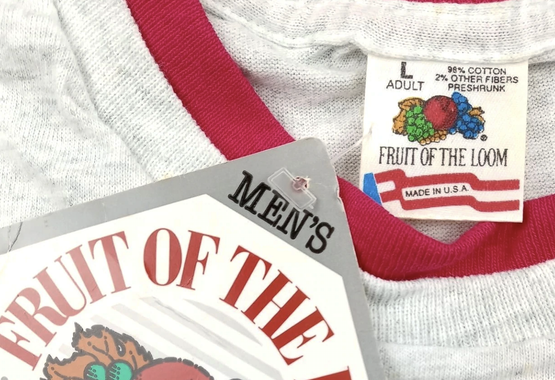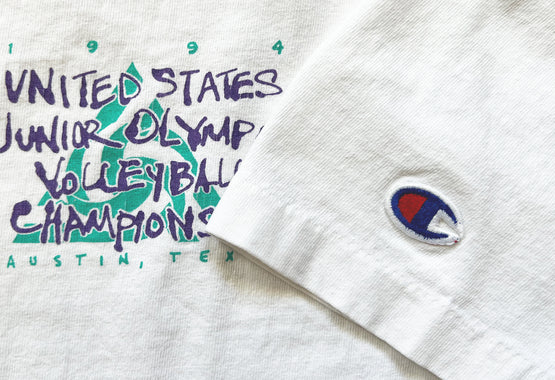Don’t Buy This Tote Bag
Have you secured the bag?
It’s called the “Thank You For Thrifting Tote 2.0” and looks fly as hell hanging out on your arm as you scour the racks at the secret spot. Holds up nicely, too, when hauling several pounds of frozen groceries up the stairs to a fifth floor apartment.
Perfect as they may be though, there’s a catch: we don’t want you to buy it. Not now. Not ever actually … if you can help it. We’re taking an audible right out of Patagonia’s “Don’t Buy This Jacket” playbook. Because, like buying new clothes that just sit in the closet doing nothing, ThriftCon’s new canvas totes are also quite terrible for the environment if that’s all they’ll end up doing.
Owning a bunch of tote bags to be more environmentally sound is mostly a myth. A dirty scam fed to us by tree huggers and fat cats with huge reusable bag investment portfolios. (That’s probably not true, but it sounds provocative.) Because unless you’re using a single tote at least 131 times, the impact on the world is a net negative. A real environmental bummer.

That’s at least according to one popular study published in 2011. In it, researchers looked at several categories of what makes a bag “eco-friendly.” It found that, surprisingly, both paper and cotton bags are arguably worse for the planet than their plastic counterparts. Because more energy and resources are used to produce them, the more damaging they are.
Cotton is especially harmful because it’s such a water-exhaustive plant and often grown in areas that aren’t naturally suitable for it (like India). It also requires a bunch of foreign crap to be sprayed on it to survive.
“Only 2.4 percent of the world’s cropland is planted with cotton, yet it accounts for 24 percent of the global market for insecticides and 11 percent for pesticides,” the World Wildlife Fund reports. “A pound of cotton requires more than 5,000 gallons of water on average, a thirst far greater than that of any vegetable and even most meats.”

Studies like that are why Patagonia’s CEO Yvon Chouinard once said that he doesn’t want anyone to buy the company’s products. It was the beginning of a new initiative in corporate branding to partner with customers and get actual use out of things instead of hoarding them or just throwing them away entirely.
“You hear ‘reuse, recycle,’ stuff like that,” Chouinard told TODAY.com in 2015. “You also have to consider refuse. Refuse to buy something. If you don't need it, don't buy it.”
Shocking as all this may be, it isn’t solely about shaking your fists at bag manufacturers. When deciding what path to take it’s better to consider what “eco-friendly” means to you. Paper bags, though easily compostable, require more resources to ship because of their weight and size — leading to a higher total carbon footprint. Cotton totes, though easier to clean and reuse for years, require more water to produce and utilizes poisonous pesticides (even though many companies have worked hard over the past several years to rectify these issues). And plastic, well, it generally ends up as a tasteless dinner for aquatic life and never really leaves the planet, ever (instead becoming microplastics that end up in the water supply in perpetuity).
Admittedly, those two little Earth characters on our totes are about as cute as a button. You’re right to want them in your life. But if you’re like many others and have other perfectly usable bags to haul your stuff, we respectfully ask you not to cop.
What’s better for you is better for everyone. Shop responsibly.

